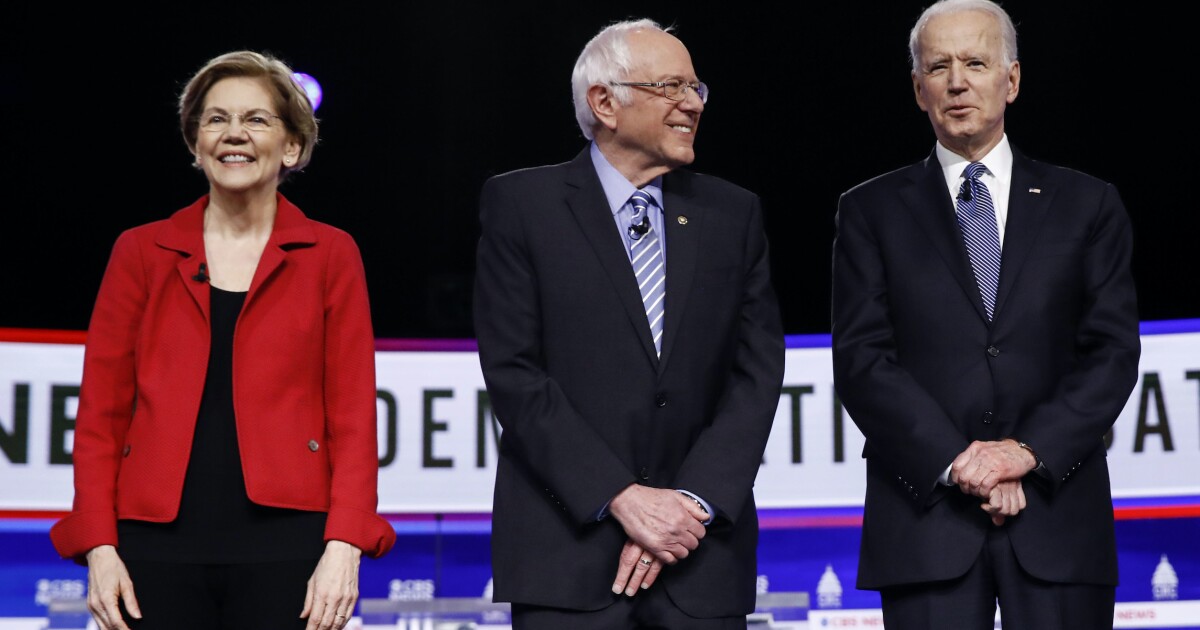

A top aide to Sen. Bernie Sanders (I) said a key strategy change might have enabled Sen. Elizabeth Warren (D) to knock the Vermont senator out of contention in the Iowa caucuses in 2020.
FIVE JAN. 6 HEARING TAKEAWAYS ON PENCE BUCKING TRUMP OVER THE 2020 ELECTION COUNT
In a retrospective interview on the 2020 campaign with Zac McCrary on the Pro Politics podcast, Ari Rabin-Havt, Sanders’s 2020 deputy campaign manager and the author of The Fighting Soul, said the Warren campaign chose to spend its war chest on field resources over television ads. But going on television earlier might have worked to the advantage of the Massachusetts senator’s Democratic presidential primary bid in a contest President Joe Biden ultimately won.
Rabin-Havt said Warren surged early, and the Sanders campaign was anticipating that she would launch ads to boost that early momentum, “but she doesn’t go on air in Iowa.”
“Once a week, we’d have kind of like a review of what we were doing,” he said. “And every week, we thought, we’re like, ‘So, she was really not on there. Nope.’ And then, she bought like one ad during one football game, and we’re like, ‘Oh, this has to be like, the intro to her going on air.’ And she just wasn’t.”
Rabin-Havt called the delay in going on air “a big strategic mistake on her campaign’s part.”
“And I think if she had gone on air in a significant way, they could have just kept us down, kept herself on top, kept us down and knocked us out,” he said.
Sanders had overlapping voter bases, on the left end of the primary political spectrum. The fellow New Englanders both had large followings among professional-class voters. But both struggled at times to broaden their bases of support, which allowed Biden, the former vice president and 36-year Delaware senator, to reignite his campaign with a win in the South Carolina primary. After losing several early contests, including poor showings in the Iowa caucuses and New Hampshire primary, black voters in South Carolina voted in strong numbers for Biden.
Adding to the Warren campaign’s strategic mistake, Rabin-Havt said, was that she was putting field staff on the ground in states later in the primary cycle.
“The other thing we saw, so then we’re trying to figure out where they’re spending their money, right?” he said. “Because they’re not going on air. They got to be using their money for something. And what we see is they’re hiring organizers in Washington state and Florida. And now, we just think it’s nuts.”
Ad buys and other spending can be canceled when resources are scarce, he said, but staff on the ground is a large and consistent expense that is hard to pull if necessary.
“That becomes a huge media cycle story,” he said, drawing negative headlines about a campaign’s prospects.
CLICK HERE TO READ MORE FROM THE WASHINGTON EXAMINER
Rabin-Havt said he believes Biden will seek the presidency again. But if Biden, who turns 80 in November, doesn’t seek a second term for some reason, Sanders could make a third White House bid.
Sanders, now 80, sought the 2016 Democratic nomination, proving to be a surprisingly strong and durable challenger to the eventual nominee, Hillary Clinton.
“He’s got boundless energy to do it,” Rabin-Havt said.







